A new peculiar trend has emerged on #crypto Twitter, where social media influencers request ETH from others without offering anything in return. This phenomenon has raised eyebrows and led to various theories, ranging from a publicity stunt to potential money laundering activities.
This wave began with one influencer promoting their wallet address, promising nothing in exchange for ETH. Surprisingly, within just 24 hours, a wallet address received over $1 million worth of ETH (and has more than doubled since then).
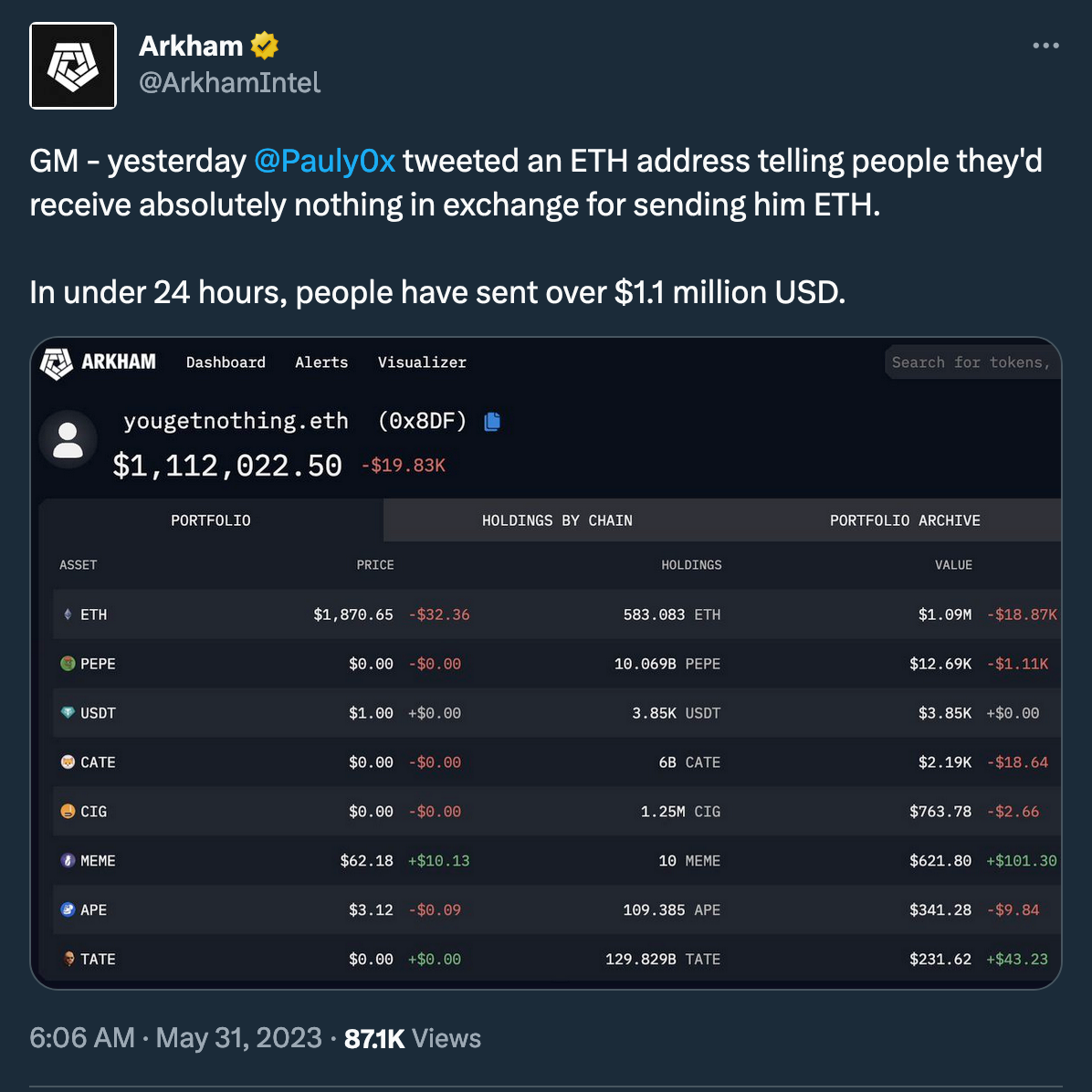
Remarkably, the only recorded outgoing transaction from the wallet was the purchase of the Ethereum Name Service (ENS) domain "yougetnothing.eth," further extending the joke.
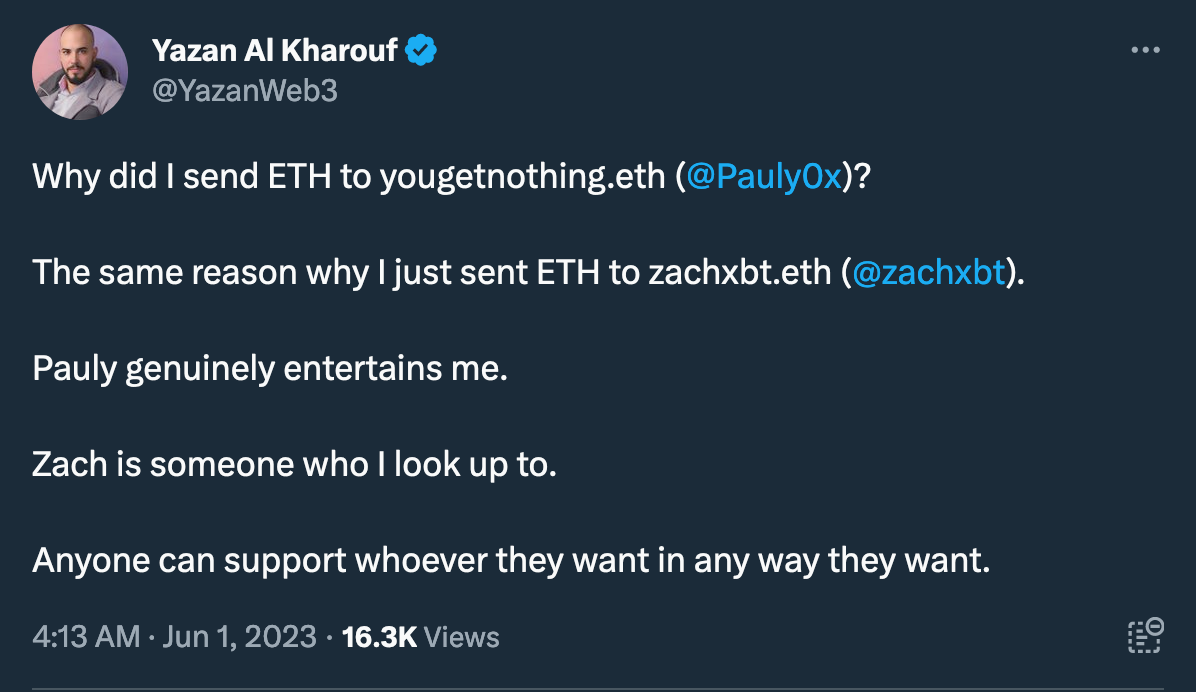
Inspired by the success of this address, many other social media accounts jumped on the bandwagon, hoping to receive their share of ETH. Some asked ETH to purchase NFT, some promised "even more nothing," while others pledged to spend it all on "hookers and cocaine."
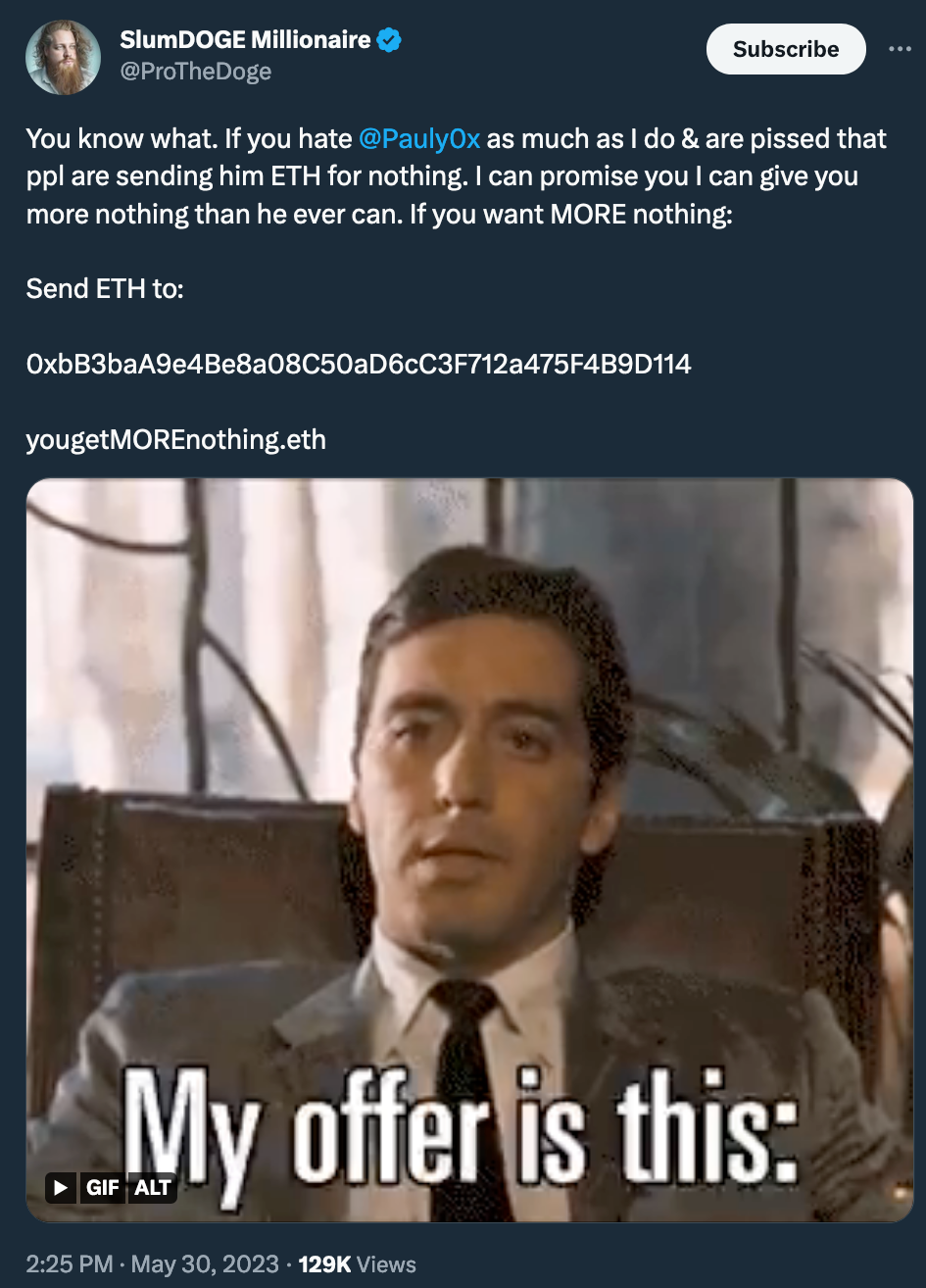
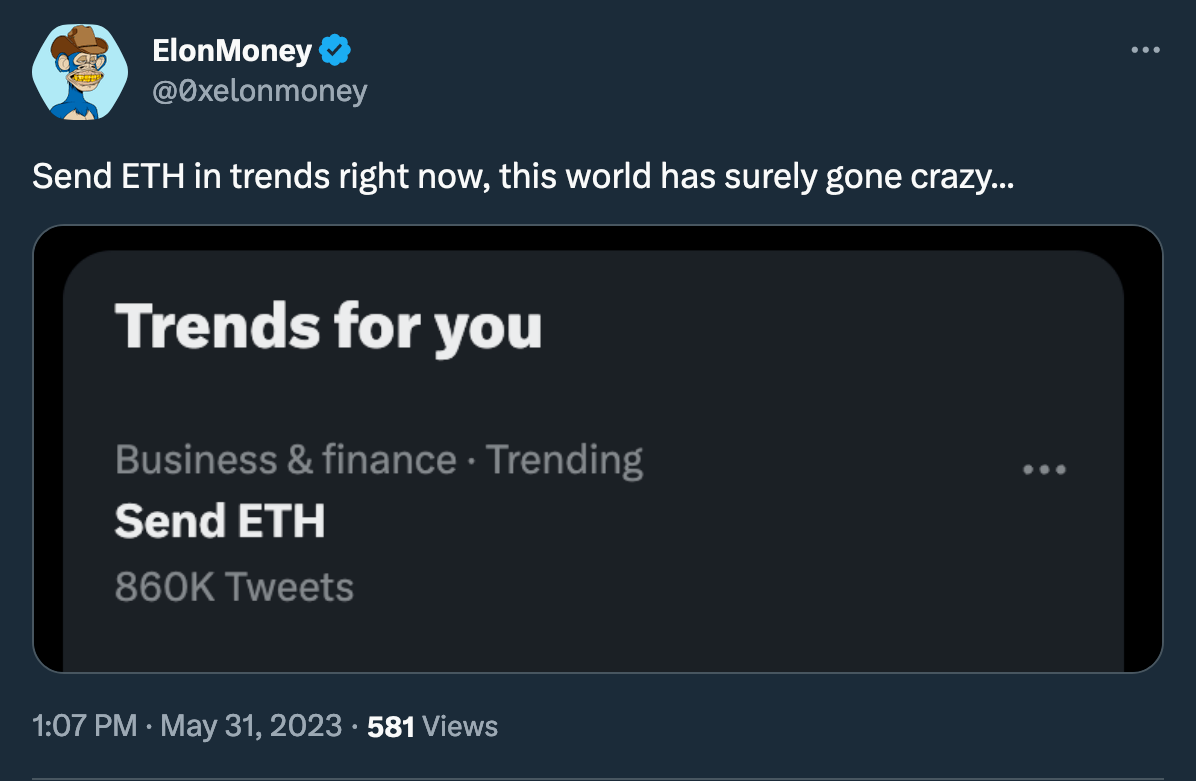
Amidst the frenzy, some users took a satirical approach and started promoting an Ethereum burn wallet, mocking those who might unwittingly send their funds to random addresses:
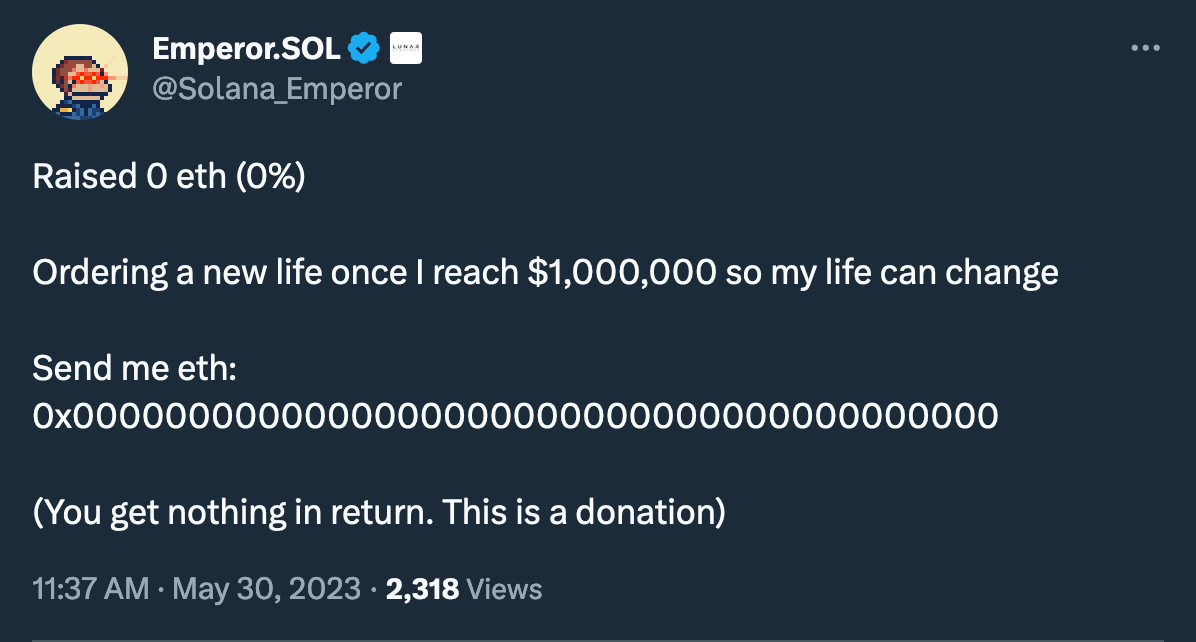
Meanwhile, another prominent pseudonymous claimed that they participated in this trend as an experiment and received only one donation. So they concluded this trend was merely a strategy to gain attention and traction by sending ETH to themselves.
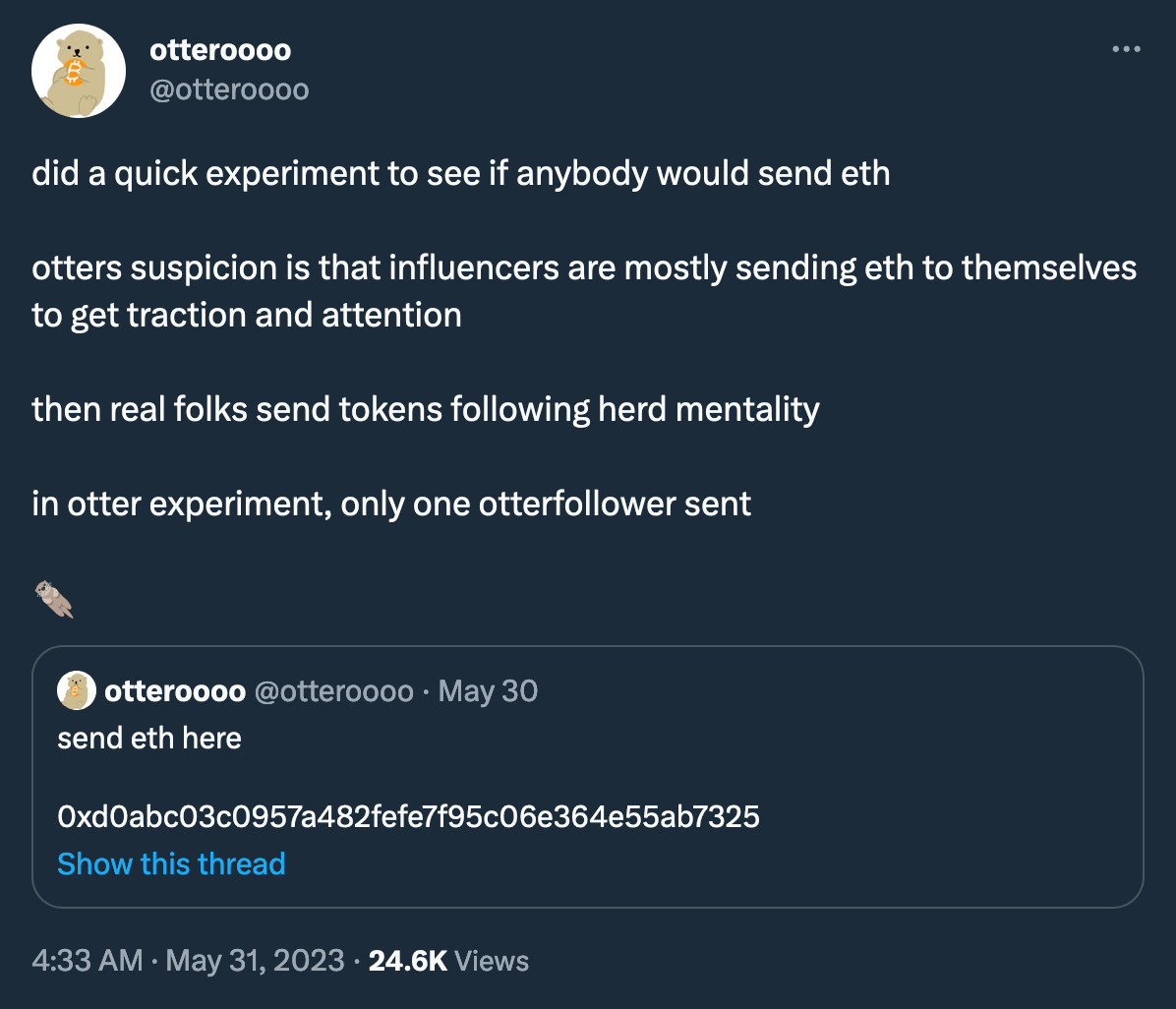
At the same time, other skeptics have raised concerns about the credibility of the situation, highlighting that the original "yougetnothing" Twitter account has a relatively modest following of approximately 68,000, raising doubts about the origin of the funds. Some even suggested the possibility of money laundering, speculating that these "dirty ETH" donations might serve as a means to conceal illicit activities.

Another Redditor noted that one of the accounts involved was only a week old but had received 544 ETH from an exchange that didn't require Know Your Customer (KYC) checks. This member also observed a pattern in the donation amounts, further raising suspicions.
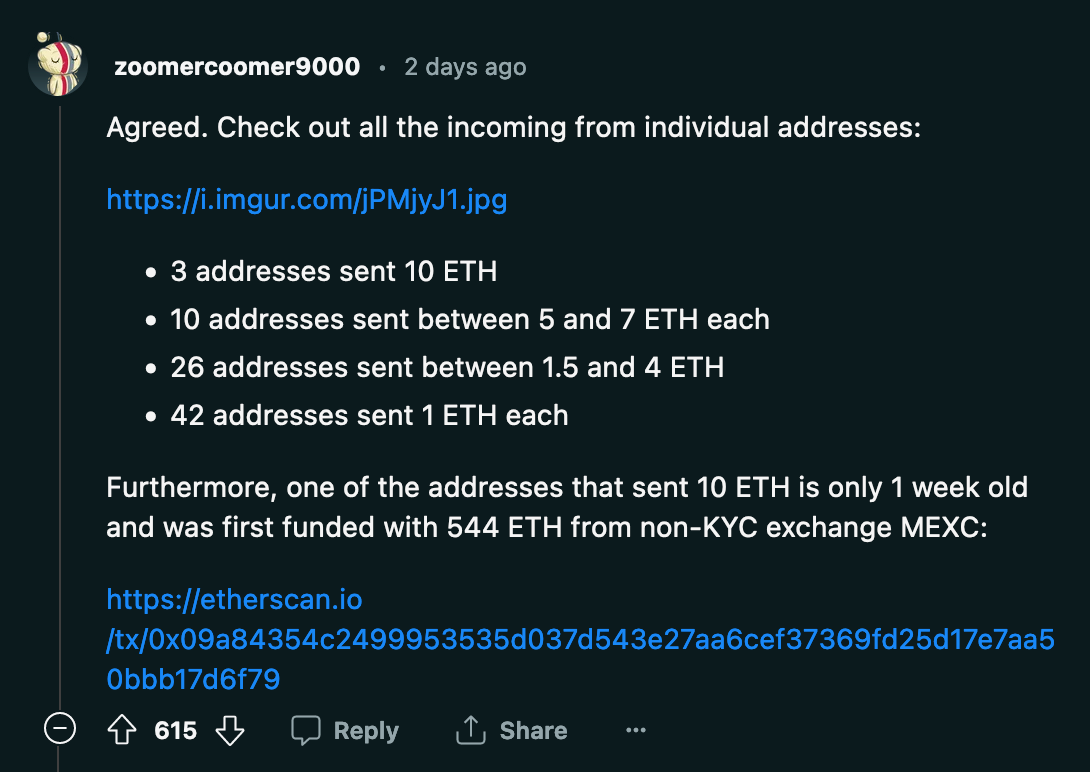
As for a routine regulatory context, on May 31, John Reed Stark, the former chief of the United States Securities and Exchange Commission (SEC), issued a lengthy warning to social media influencers manipulating cryptocurrency prices. Stark emphasized that these influencers would eventually face repercussions and penalties for their actions.
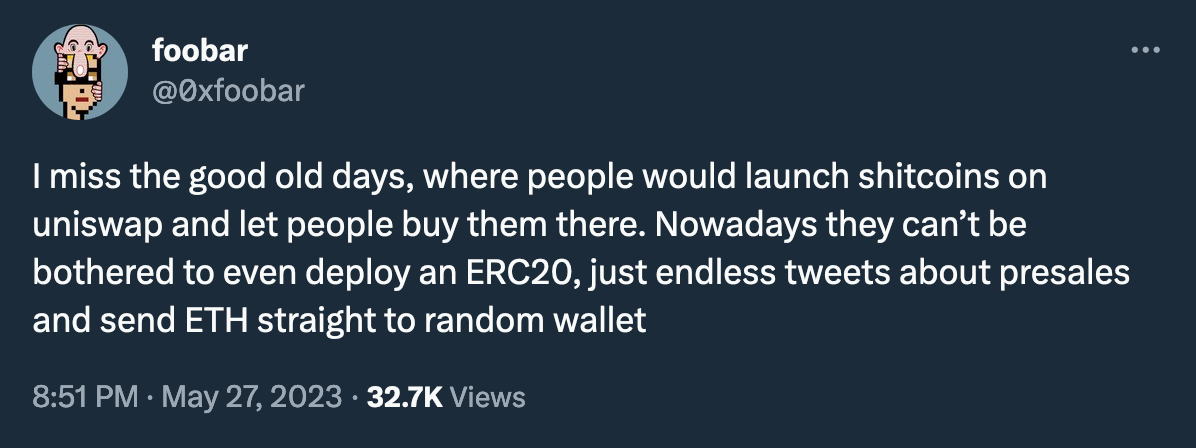

Follow us on Twitter and Telegram and and get up-to-the-minute news

